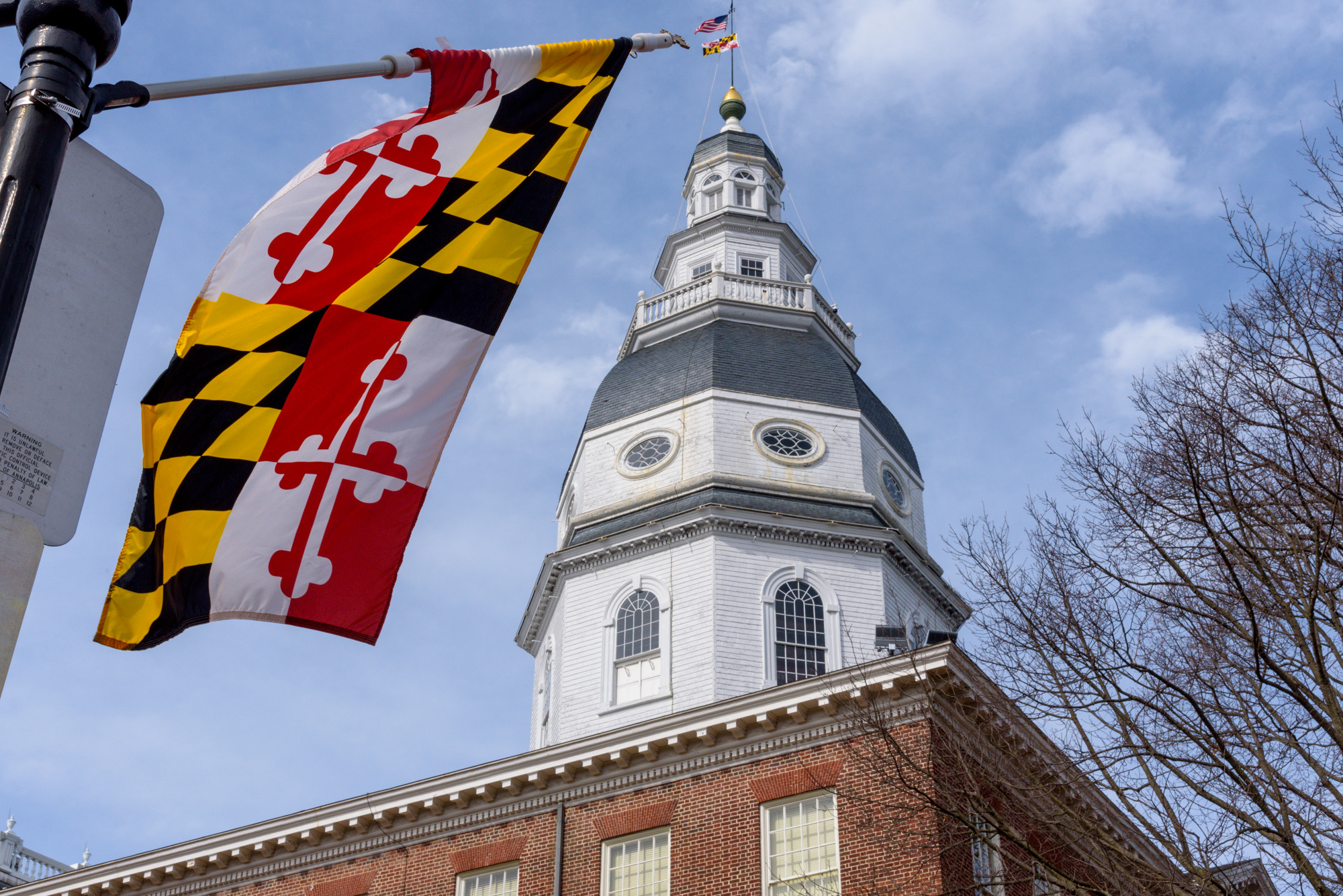In the first two weeks of its 2021 session, the Maryland General Assembly is addressing bills covering a wide range of issues, including pandemic-related economic aid, police reform, graduate student collective bargaining and climate change, among others.
Here’s a look at some of the big pieces of legislation introduced so far this session.
Providing economic stimulus to Marylanders amid the pandemic
Earlier this month, Gov. Larry Hogan proposed a $1 billion coronavirus relief package — called the RELIEF Act — designed to help families, small business owners and those unemployed due to the ongoing pandemic.
If approved, the program would provide two rounds of direct stimulus payments to more than 400,000 “low-to-moderate income” Marylanders who filed for the earned income tax credit.
The first round would consist of up to $500 for families and $300 for individuals, followed by a second round of up to $250 and $150 respectively.
The legislation would also allocate $180 million to repealing state and local taxes on unemployment benefits and $518 million to offering sales tax credits and unemployment tax relief to small businesses.
The bill would be funded through budget savings, the state’s reserve funds and a “small portion” of the state’s rainy day fund, according to the governor’s website.
“We will ask both houses of the legislature to act on [the legislation] immediately,” Hogan said at a press conference Jan. 11. “So that we can immediately get these much-needed dollars out the door and into the pockets of those who desperately need it.”
[Hogan: Maryland to enter phase 1B of the state’s COVID-19 vaccination plan]
Reducing greenhouse gas emissions and planting trees
The Climate Solutions Now Act of 2021 would require the state to reduce statewide greenhouse gas emissions by 60 percent from 2006 levels by the year 2030 and to achieve net-zero greenhouse gas emissions by 2045.
Proposed by Sen. Paul Pinsky (D-Prince George’s) and Del. Dana Stein (D-Baltimore County), the bill would also require the state labor department to establish energy-conservation regulations for certain buildings.
This bill builds off of the Climate Solutions Act of 2020 — a plan the two legislators proposed last year before the legislative session was cut short by the coronavirus pandemic.
The bill also calls for the planting of 5 million native trees through both public and private efforts.
The state aims for at least 10 percent of those trees to be planted in “underserved areas,” which includes urban areas that were redlined at any point in time and urban areas with above-average unemployment rates, among others.
Pinsky stressed the importance of the word “now” in this bill.
“Not tomorrow, not next year, not the year after. We have no time to waste,” Pinsky said during a virtual news conference with Chesapeake Climate Action Network.
Giving funds to student-athletes and HBCUs
Lawmakers have proposed a new version of legislation that would resolve a lawsuit by the state’s historically Black colleges and universities, which alleged the state violated civil rights laws by underfunding its HBCUs while upholding policies that promote segregation. The lawsuit has been going on since 2006.
The legislation would resolve the lawsuit by providing more than a half-billion dollars in additional funding over the next decade to the state of Maryland’s HBCUs: Coppin State, Morgan State, Bowie State and University of Maryland, Eastern Shore.
Last year, Hogan vetoed a similar bill last year after it was passed by both the House and the Senate, citing financial uncertainty due to the coronavirus pandemic.
[Maryland Gov. Hogan proposes $1 billion COVID-19 relief legislation]
The new version, backed by House of Delegates Speaker Adrienne Jones, would set aside a total of $577 million for the four schools.
“We need to act now to level the playing field for all students, regardless of background or race or college they attend, and end this case for the betterment of every student,” Jones said in a Jan. 19 press conference with the House Appropriations Committee.
A bill named in honor of Jordan McNair, a University of Maryland football player who died in 2018 after suffering heatstroke at a team workout, would require public higher education institutions to renew the athletic scholarships of athletes who suffer “incapacitating” injuries while participating in the athletic program, among other things.
The Jordan McNair Safe and Fair Play Act shares a name with a bill that was not passed last year, but the two differ significantly. Unlike the bill introduced this year, last year’s would have created an advisory council to consider student-athletes’ voices in addition to setting up potential avenues for athletes at public universities in the state to profit off their own names.
Increasing transparency and accountability with police officers
Lawmakers have proposed a slew of bills that aim to reform state law enforcement in the wake of last summer’s massive demonstrations against police brutality.
One would repeal the Law Enforcement Officers’ Bill of Rights, a set of extensive employment protections for police officers.
A second bill aims to increase police transparency by establishing that some records from administrative or criminal investigations are not personnel records. This means these records would not be exempt from inspection via the Maryland Public Information Act.
The bill is named after Anton Black, a 19-year-old man who died in police custody in 2018.
“This statute has long shielded officers from accountability by preventing meaningful community oversight and providing undue and unnecessary protections to officers accused of misconduct,” Del. Gabriel Acevero (D-Montgomery), lead sponsor of the House version of both bills, wrote on Twitter.



